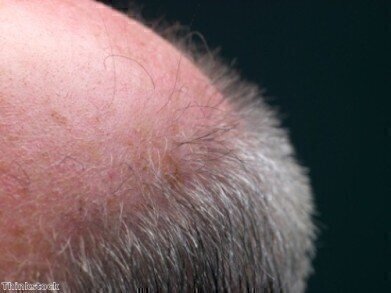News
Collaboration Aims to Develop Treatment for Huntington’s Disease
Feb 10 2012
The University of Dundee and GlaxoSmithKline (GSK) have joined forces to tackle Huntington’s disease, an inherited brain disorder, by building on the findings of University Professor Susann Schweiger who has discovered a mechanism that controls production of the disease-causing protein involved in the condition.
“If we can inhibit this process then we may prevent the build up of this toxic protein in the brain and hopefully provide a treatment for Huntington’s Disease,” said Professor Schweiger. The £1 million-plus research project, being led by Professor Schweiger’s team, will also involve Dr Ros Langston and Professor Jeremy Lambert from the Division of Neuroscience, located within the new Medical Research Institute at the University of Dundee, and by Dr David Gray from the University’s Drug Discovery Unit. The project brings together expertise in molecular genetics, behaviour, brain physiology and drug development in an exciting synergistic collaboration with researchers at GSK.
Professor Jeremy Lambert said, “This is a truly interdisciplinary effort and one which we are uniquely placed to tackle in Dundee. It is extremely heartening to see GSK, a global pharmaceutical company, focusing on an `orphan disease’ like Huntington’s. Their involvement greatly increases the chance of developing a treatment for this devastating disease.”
There is currently no cure for the disease which can begin to emerge in patients typically between 30 and 50, causing memory problems, anxiety and depression before severely affecting movement; patients die within 10-15 years of onset.
The disease is caused by a single gene defect. Anyone with a parent who has Huntington’s Disease has a 50% chance of inheriting this fatal disease. However, as Huntington’s Disease is relatively rare, only affecting around 1 in 5,000 of the population, it is classed an `orphan disease’ and consequently has not been seriously `targeted’ by the pharmaceutical industry, until this breakthrough collaboration. Cath Stanley, Chief Executive of the Huntington’s Disease Association, commented, “This is an exciting step forward which will offer much needed hope to families affected by Huntington's disease.” The University and GSK are already engaged in a similar collaboration examining another orphan disease, Recessive Dystrophic Epidermylosis Bullosa, a rare disease of the skin and mucosal linings which results in highly painful, debilitating and lifelong skin blistering and puts patients at great risk of infection
and of developing certain skin cancers. Again, there are currently no effective medicines to treat this disease.
Digital Edition
Lab Asia Dec 2025
December 2025
Chromatography Articles- Cutting-edge sample preparation tools help laboratories to stay ahead of the curveMass Spectrometry & Spectroscopy Articles- Unlocking the complexity of metabolomics: Pushi...
View all digital editions
Events
Jan 21 2026 Tokyo, Japan
Jan 28 2026 Tokyo, Japan
Jan 29 2026 New Delhi, India
Feb 07 2026 Boston, MA, USA
Asia Pharma Expo/Asia Lab Expo
Feb 12 2026 Dhaka, Bangladesh



















